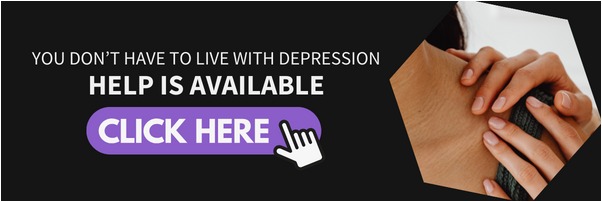We’ve all been there—you meet someone special, but instead of butterflies, you feel a rush of anxiety. It’s that inexplicable fear of falling in love. Sure, love should be exhilarating, but for some, it’s terrifying. This fear can keep you from forming meaningful relationships and leave you feeling isolated. Wondering if you might be secretly afraid of letting someone new into your heart? Understanding the signs can help you face these fears head-on and open yourself up to the possibility of genuine connection.
Understanding the Fear of Falling in Love
So, you’re struggling with the fear of falling in love. You’re not alone. This fear, sometimes called philophobia, can stem from various psychological and emotional factors. Let’s break it down for better understanding.
Psychological Roots
The roots of the fear of falling in love run deep and often start in our mind. Here’s a look at some common psychological reasons:
- Past Traumas: Have you ever been hurt by someone you loved or trusted? Bad breakups or even childhood experiences can create a lasting scar. Your mind remembers that pain and tries to avoid it by keeping love at bay.
- Anxiety: If you’re an anxious person, love can feel like riding a roller coaster without a seatbelt. The unpredictability and vulnerability that come with love can make you wary.
- Attachment Issues: Sometimes, early relationships set the stage for future ones. If you had an insecure attachment with caregivers, it might make trusting and falling for someone difficult now.
Emotional Factors
Emotions are powerful and can sometimes play tricks on us when it comes to love. Here are some emotional factors that might cause you to fear falling in love:
- Fear of Vulnerability: Opening up to someone means showing your true self, flaws and all. That can be really scary. What if they don’t like what they see?
- Fear of Rejection: Rejection in love stings. The fear of someone not feeling the same way about you can make the idea of falling in love terrifying.
- Fear of Losing Independence: Being in a relationship often means making compromises. If you value your freedom and independence, the thought of sharing your life with someone else can feel suffocating.
Understanding these fears can help you recognize patterns and reasons behind your feelings. It’s the first step in overcoming the fear and finding the love you deserve.
Common Signs You’re Afraid of Falling in Love
Recognizing the signs that you’re afraid of falling in love can be the first step to overcoming it. Sometimes, these signs are hard to spot, especially if they have become a part of your everyday behavior. Here are some common indicators that fear might be holding you back from finding love.
You Sabotage Relationships
Self-sabotage can often stem from the fear of getting too close to someone. You might:
- Pick unnecessary fights to create distance.
- Start finding faults in your partner that you didn’t notice before.
- Become emotionally distant, avoiding deep conversations or future planning.
Imagine you’re building a sandcastle only to keep kicking it down—expecting it to fall before it’s even complete. This behavior ensures the relationship collapses before it grows too strong.
Difficulty in Trusting Others
Trust issues often surface when you’re scared of falling in love. This might look like:
- Being overly suspicious of your partner’s actions.
- Reluctant to share personal details or emotions.
- Always expecting the other shoe to drop, even when things are going well.
Basically, you’ve built a high wall around your heart, complete with guard towers and a moat. It’s about protecting yourself from potential pain, even if it means pushing people away.
Hypercriticism
Sometimes, being overly critical is just a defense mechanism:
- You focus on minor flaws in someone to justify not getting closer.
- Criticism acts as a way to keep emotional distance.
- It’s easier to find reasons to leave than to stay and risk getting hurt.
Think about it like a harsh movie critic who never enjoys the film. You’ll miss out on the beauty and joy, always looking for what’s wrong rather than what’s right.
Inconsistency in Actions and Intentions
You say you want love, but your actions tell a different story:
- You might express a desire for a relationship but then cancel dates often.
- Offer mixed signals—showing interest and then pulling away.
- Say you want intimacy but retreat when things get serious.
This can leave potential partners feeling like they’re on a roller coaster without a safety bar. It’s confusing for them and frustrating for you.
Feeling Trapped in Relationships
The sensation of being trapped often indicates a fear of commitment:
- You feel smothered even when your partner gives you space.
- The relationship feels like a cage rather than a partnership.
- You panic at the thought of long-term commitment.
It’s like being an aviator afraid of flying—you grit your teeth through the turbulence, often looking for the nearest airport to make an emergency landing.
Recognizing these signs is essential, not just for identifying your fears but also for working towards overcoming them. Understanding is the first step toward change, helping you gradually open your heart to the possibilities of love.
Impact of Fear on Personal Relationships
Fear of falling in love can significantly affect personal relationships in various ways. Let’s explore how this fear impacts different areas of our social and emotional lives.
Strained Relationships
When you’re afraid to fall in love, it doesn’t just affect your romantic relationships—it spills over into other areas of your life too. Imagine carrying a heavy backpack; over time, you’ll start feeling its weight everywhere you go.
- Family Ties: You might find creating distance with family members. Fear might make it harder to open up to parents or siblings, leading to misunderstandings.
- Friendships: With friends, the fear can create an invisible barrier. Maybe you’re always keeping things light, avoiding deeper conversations because emotional closeness seems scary.
- Romantic Relationships: This is where the impact is the most direct. Being afraid to fall in love means holding back, not fully committing, or even ending relationships before they have a chance to grow. It’s like planting a garden but never watering it, expecting it to thrive somehow.
Emotional Isolation
Fear of love can lead to emotional isolation. This isn’t just about physical solitude but feeling emotionally distant even when surrounded by people. Here’s how it plays out:
- Loneliness: Constantly shutting people out means you miss out on emotional connections, leaving you feeling alone. It’s like standing in the middle of a crowded room, but still feeling unnoticed and misunderstood.
- Self-Doubt: Fear can feed self-doubt. You may start questioning your worthiness of love and connections, further pushing you into isolation.
- Mistrust: Emotional isolation also stems from mistrust. When you can’t trust others to keep you safe emotionally, it becomes second nature to build walls around yourself, reinforcing feelings of loneliness.
Being aware of these impacts can help you understand why tackling your fear of falling in love is essential. Without doing so, you run the risk of continually straining the meaningful connections in your life and facing emotional isolation, making it harder to live fully and happily.
Overcoming the Fear of Falling in Love
Conquering the fear of falling in love is a journey—a mix of introspection, gradual steps, and a willingness to embrace vulnerability. Here are practical ways to help you move past this fear and open your heart.
Self-Reflection and Awareness
Understanding your fear starts with self-reflection. Being honest with yourself can be challenging, but it’s essential. Ask yourself:
- What scares me about falling in love?
- Are there past experiences influencing my current fears?
- How do I feel when I think about being in a relationship?
Journaling can be a great way to process these questions. Write down your thoughts and see if you notice any patterns. Acknowledging your fears is the first step to overcoming them. Remember, it’s okay to have these feelings—realizing them makes you more aware of the areas you need to work on.
Therapeutic Approaches
Sometimes, the fear of love is rooted in deep-seated anxieties that need professional help to untangle. Therapy can be a safe space to explore these feelings:
- Find a Therapist: Look for a professional who specializes in relationship issues. Cognitive-behavioral therapy (CBT) is particularly effective for addressing these fears.
- Counseling Sessions: Regular sessions can help you work through your anxieties and equip you with strategies to cope with them.
- Group Therapy: Sometimes, joining a group can provide support and show you that others share similar fears.
Therapy isn’t a sign of weakness; it’s a tool for personal growth. Sometimes, talking to an outside party provides the clarity and guidance you need to overcome your fears.
Building Trust Slowly
Trust isn’t built overnight. It takes time, patience, and consistency. Here’s how you can start:
- Take Small Steps: Begin by sharing little things about yourself. Gradually work up to more personal stories as you feel more comfortable.
- Be Consistent: Trust grows through consistent actions. Be reliable in keeping your promises and showing up for your partner.
- Create a Safe Space: Both partners should feel safe to express themselves without fear of judgment. Open communication fosters trust and understanding.
Don’t rush the process. Building trust is like slowly nurtured garden—consistent care leads to beautiful blossoms.
Embracing Vulnerability
The idea of being vulnerable can be intimidating, but it’s integral to deep, meaningful connections. Think of vulnerability as the key to closeness:
- Acknowledge Vulnerability: Accept that feeling vulnerable is part of loving someone. It’s normal and means you care deeply.
- Express Your Feelings: Sharing how you feel, including your fears and past hurts, helps build a strong emotional foundation.
- Be Open to Emotional Experiences: Allow yourself to feel and experience emotions fully. It’s okay to be scared and excited at the same time.
Imagine vulnerability as opening a door. Sure, you might let in the cold wind sometimes, but you also allow the warm, fresh air of genuine connection to enter.
Taking these steps can gradually help you navigate the fear of falling in love. By understanding yourself, seeking help when needed, building trust slowly, and embracing vulnerability, you pave the way for deeper and more fulfilling relationships.
Conclusion
Recognizing the fear of falling in love is crucial for fostering healthier relationships. The signs, from sabotaging relationships to hypercriticism, serve as protective mechanisms but ultimately isolate you emotionally. Acknowledging these behaviors and exploring their roots helps in addressing them.
Start with self-reflection, seek professional help if needed, and gradually build trust with an open heart. Embrace vulnerability as a bridge to genuine connections. Fear should never hold you back from the joy and fulfillment love promises. Take that step towards a more loving, connected life. You deserve it.








